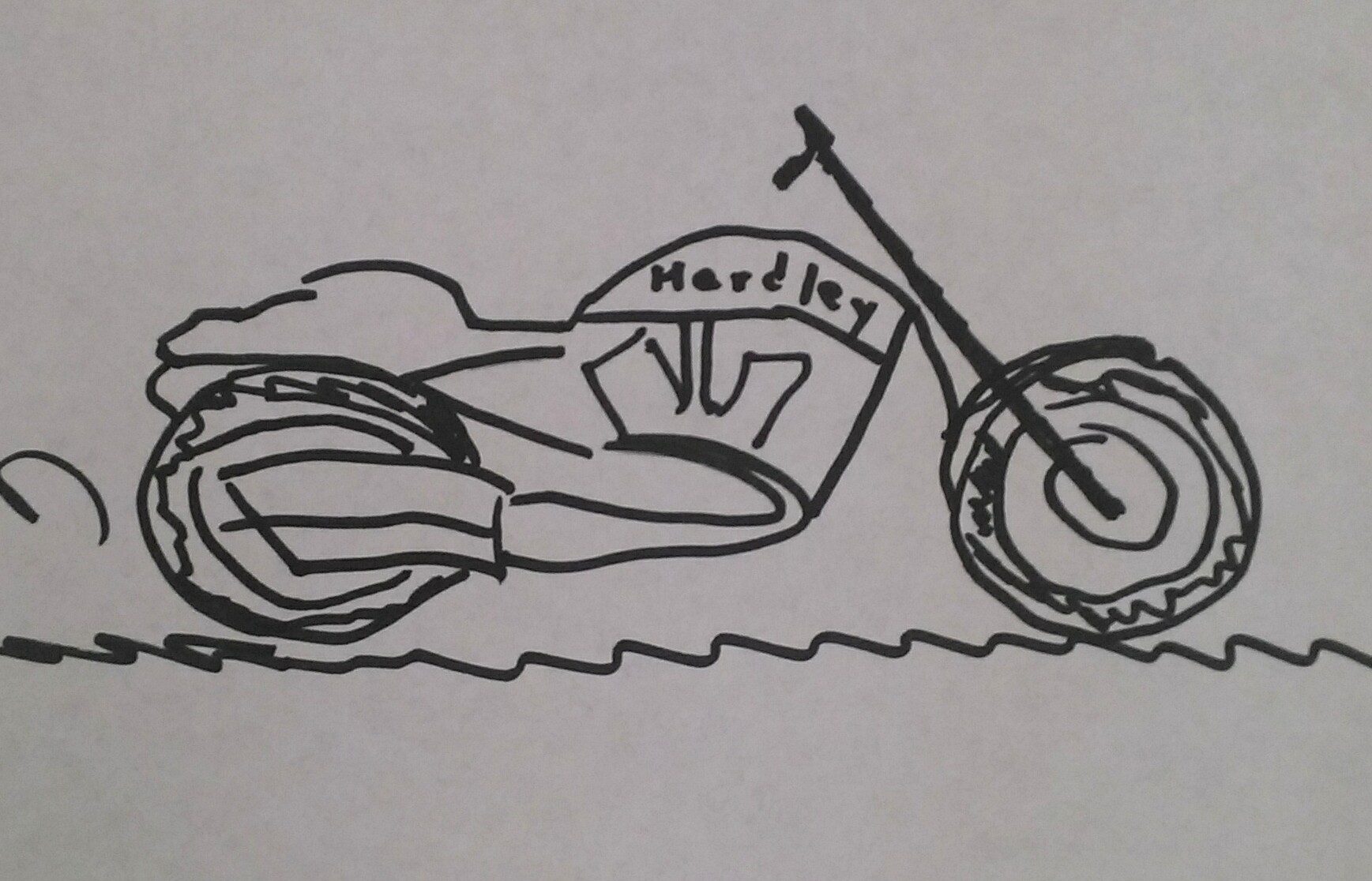In fall of 2010 the bankruptcy judges in the Minnesota were getting upset. Their phones were ringing with calls from people who had questions that should have been answered by their lawyers; but these people were complaining that their lawyers would not return the calls.
At about the same time the judges started hearing complaints from the trustees about lawyers not showing up for the hearings (meeting of creditors). It didn’t take long for them to figure out that there were a large number of new lawyers on the scene who didn’t know what they were doing. Just out of law school, they were trying to pay their student loans by jumping into what was at that time a booming bankruptcy market. Worse than that, however, many of these lawyers had been hired by fly by night petition preparation mills who were asking them to just sign off on bankruptcy petitions which had been prepared in India or who knows where. So although there was a lawyer’s name on the bankruptcy case, it had actually been prepared by an automated service. This resulted in many cases being filed on behalf of clients who had never actually talked with or met the person who supposedly was their lawyer.
Lots of things were going wrong with these cases. This made it harder for everyone in the system. In an effort to remedy the situation, our judges created and began to require the use of the following “responsibility forms.” Although I was embarrassed for my profession – that it had come to this – when they first came out, I can now see that they have some value. I reproduce them here. Please note that the form for Chapter 7 is slightly different than the one for Chapter 13. Now that it’s been over six years since all that happened, it may be old news; but both the lawyer and the client are still required to sign these forms at the time a case is filed.
By the way, usually when I discuss these forms with my clients, I refer to them as “the dummy checklist.” If it weren’t for some real dummies, we would not need them.
NOTICE OF RESPONSIBILITIES OF
CHAPTER 7 DEBTORS AND THEIR ATTORNEYS
This Notice lists certain responsibilities of debtors and their attorneys. Nothing in this document changes, limits, or in any way alters the debtor’s or the debtor’s attorney’s obligations under the Bankruptcy Code, the local and national rules, or any rule of professional responsibility.
UNLESS THE COURT ORDERS OTHERWISE:
I. Before the case is filed, the attorney for the chapter 7 debtor shall, at a minimum:
A. Meet with the debtor to review and analyze the debtor’s real and personal property, debts, income, and expenses and advise the debtor on whether to file a bankruptcy petition;
B. Explain the various bankruptcy and non-bankruptcy options, the consequences of filing under chapters 7, 11 or 13 and answer the debtor’s questions;
C. Explain to the debtor how the attorney’s fees are paid;
D. Advise the debtor of the requirement to provide to the trustee the most recently filed tax return(s) at least seven days prior to the scheduled meeting of creditors. In addition, advise the debtor of the requirement to attend the meeting of creditors and identify the documents the debtor must bring to the meeting;
E. Advise the debtor that providing false information in the bankruptcy schedules or false testimony at the meeting of creditors or other hearing or trial may expose the debtor to criminal prosecution and denial of discharge;
F. Advise the debtor of the necessity of maintaining liability, collision, and comprehensive insurance on vehicles securing loans or leases;
G. Timely prepare and file the debtor’s petition, plan, schedules, statements, certificates, and other documents required to commence a case, and review them for accuracy contemporaneously with the filing.
II. After the case is filed, the attorney for the chapter 7 debtor shall, at a minimum:
A. Ensure that the debtor is adequately represented by an attorney at the meeting of creditors;
B. Prepare, file, and serve any necessary amendments to the petition, schedules, and statements;
C. Promptly respond to the debtor’s questions throughout the case;
D. Consider and advise the debtor concerning the debtor’s options to buy, sell or refinance real or personal property and assume or reject executory contracts or unexpired leases;
E. Prepare and file a proof of claim for a creditor when appropriate to protect the debtor’s interest;
F. Fully advise the debtor of the legal effect and consequences of proposed reaffirmation agreements and any defaults thereunder and, where appropriate, negotiate alternate terms with secured creditors, ensure that any agreement is fully and properly completed and filed and appear at any hearing, if required;
G. Advise the debtor in motions for relief from the automatic stay, file objections when appropriate, and appear, when required, at any hearing;
H. Prepare, file, and serve responses to motions for dismissal of the case;
I. Advise the debtor of the requirement to complete an instructional course in personal financial management and the consequences of not doing so;
J. Represent the debtor in connection with any audit request; and
K. Represent the debtor in bringing and defending any and all other matters or proceedings in the bankruptcy case as necessary for the proper administration of the case.
III. The attorney shall comply with Local Rule 9010-3 and represent the debtor in bringing and defending all matters in the bankruptcy case until a substitution of attorneys is filed or an order is entered allowing the attorney to withdraw.
Unless otherwise agreed, the attorney has no responsibility to represent the debtor in adversary proceedings. However, if an adversary proceeding is filed against the debtor, the attorney will explain to the debtor the estimated cost of providing representation in the adversary proceeding, the risks and consequences of an adverse judgment, and the risks and consequences of proceeding without counsel, as well as the sources, if any, of possible pro bono representation.
IV. Before the case is filed, the chapter 7 debtor shall:
A. Fully disclose, review and analyze with the attorney the debtor’s real and personal property, all debts, income, expenses and all other financial information needed to properly complete the schedules and statements;
B. Prior to and throughout the case respond promptly to all communications from the attorney;
C. Prior to and throughout the case, timely provide the attorney with full and accurate financial and other information and documentation the attorney requests, INCLUDING BUT NOT LIMITED TO:
1. A Certificate of Credit Counseling and any debt repayment plan;
2. Proof of income received from all sources in the six-month period preceding filing, including pay stubs, social security statements, workers’ compensation payments, income from rental property, pensions, disability payments, child and spousal support, and income from self-employment;
3. The most recently filed federal and state income tax returns, or transcripts of returns, as well as any other returns requested by the attorney, the trustee, the court, or a party in interest;
4. A government-issued photo identification and proof of social security number, such as a social security card or W-2;
5. A record of interest, if any, in an educational individual retirement account or a qualified state tuition program;
6. The name, address, and telephone number of any person or state agency to whom the debtor owes back child or spousal support or makes current child or spousal support payments, and any and all supporting court orders, declarations of voluntary support payments, separation agreements, divorce decrees, or property settlement agreements;
7. Any insurance policies requested by the attorney;
8. Vehicle titles for all cars, trucks, motorcycles, boats, ATVs, and other vehicles titled in the debtor’s name;
9. Legal descriptions for all real property, wherever located, owned by the debtor or titled in the debtor’s name, or in which the debtor has any interest whatsoever, including but not limited to, a timeshare, remainder interest, or life estate;
10. Documents relating to any inheritance to which the debtor is entitled or may be entitled;
11. Information relating to any foreclosures, repossessions, seizures, wage garnishments, liens, or levies on assets which occurred in the preceding 12 months or continues after the filing of the case;
12. Information and documents relating to any prior bankruptcies filed by the debtor(s) or any related entity;
13. Any changes in income or financial condition, such as job loss, illness, injury, inheritance, or lottery winnings before or during the case;
14. Information and documents relating to any lawsuits in which the debtor is involved before or during the case or claims the debtor has or may have against third parties;
15. Information relating to any seizure of tax refunds by the IRS or Department of Revenue;
16. All information or documentation needed to respond to any motion or objection in the bankruptcy case;
17. Any tax returns, account statements, pay stubs, or other documentation necessary to timely comply with requests made by the United States Trustee or the Chapter 7 Trustee or any audit requests.
D. Cooperate with the attorney in preparing, reviewing, and signing the petition, schedules, statements, and all other documents required for filing a bankruptcy case.
V. After the case is filed, the chapter 7 debtor shall:
A. Timely and promptly comply with all applicable bankruptcy rules and procedures;
B. Appear punctually at the meeting of creditors with recent proof of income, a government-issued photo identification card, proof of social security number, and copies of all financial account statements covering the date the bankruptcy petition was filed;
C. Contact the attorney before buying, refinancing, or contracting to sell real property and before entering into any loan agreement until the debtor receives a discharge;
D. Keep the court, the trustee, and the attorney informed of the debtor’s current address and telephone number; and
E. Complete an approved debtor education course and provide the certificate of attendance to the attorney for filing.
VI. The chapter 7 debtor’s attorney shall, both before and after the case is filed, comply with all applicable professional and ethical rules and shall exercise civility in dealings with all entities with which the attorney comes in contact. The attorney shall also advise the chapter 7 debtor to likewise act in a civil and courteous manner, to dress in a manner appropriate for a federal proceeding and debtors shall do so.
Signatures. By signing this acknowledgment, the debtor and the attorney certify they have read it and understand what is required of the debtor and the attorney in this bankruptcy case.
A fully executed copy of this document must be filed with the petition commencing the bankruptcy case of the debtor(s).
NOTICE OF RESPONSIBILITIES OF
CHAPTER 13 DEBTORS AND THEIR ATTORNEYS
This Notice lists certain responsibilities of debtors and their attorneys. Nothing in this document changes, limits, or in any way alters the debtor’s or the debtor’s attorney’s obligations under the Bankruptcy Code, the local and national rules, or any rule of professional responsibility.
UNLESS THE COURT ORDERS OTHERWISE:
I. Before the case is filed, the attorney for the chapter 13 debtor shall, at a minimum:
A. Meet with the debtor to review and analyze the debtor’s real and personal property, debts, income, and expenses and advise the debtor on whether to file a bankruptcy petition;
B. Explain the various bankruptcy and non-bankruptcy options, the consequences of filing under chapters 7, 11 or 13 and answer the debtor’s questions;
C. Explain to the debtor how the attorney’s and trustee’s fees are paid;
D. Explain what payments will be made directly by the debtor and what payments will be made through the debtor’s chapter 13 plan, with particular attention to mortgage and vehicle loan payments, as well as any other claims with accrued interest;
E. Explain to the debtor how, when, and where to make the chapter 13 plan payments;
F. Explain to the debtor that the first plan payment must be made to the trustee within 30 days of filing the case;
G. Advise the debtor of the requirement to provide to the trustee the most recently filed tax return(s) at least seven days prior to the scheduled meeting of creditors. In addition, advise the debtor of the requirement to attend the meeting of creditors and identify the documents the debtor must bring to the meeting;
H. Advise the debtor that providing false information in the bankruptcy schedules or false testimony at the meeting of creditors or other hearing or trial may expose the debtor to criminal prosecution and denial of discharge;
I. Advise the debtor of the necessity of maintaining liability, collision, and comprehensive insurance on vehicles securing loans or leases;
J. Timely prepare and file the debtor’s petition, plan, schedules, statements, certificates, and other documents required to commence a case, and review them for accuracy contemporaneously with the filing.
II. After the case is filed, the attorney for the chapter 13 debtor shall, at a minimum:
A. Ensure that the debtor is adequately represented by an attorney at the meeting of creditors and make every effort to obtain confirmation of the plan;
B. Prepare, file, and serve any necessary amendments to the petition, schedules, and statements;
C. Respond to any objection to plan confirmation and, where necessary, prepare, file, and serve a modified plan, and appear, as required, at any hearing;
D. Prepare, file, and serve post-confirmation documents necessary to modify the plan;*
E. Promptly respond to the debtor’s questions throughout the case;
F. Prepare, file, and serve necessary motions to buy, sell, or refinance real or personal property;*
G. Prepare and file a proof of claim for a creditor when appropriate to protect the debtor’s interest;
H. Object to improper or invalid claims when appropriate to protect the debtor’s interest;*
I. Advise the debtor in motions for relief from the automatic stay, file objections when appropriate, and appear, when required, at any hearing;*
J. Consider and advise the debtor concerning lien avoidance and, if appropriate, prepare, file, and serve necessary motions to avoid liens on real or personal property;
K. Prepare, file, and serve responses to motions for dismissal of the case;*
L. Advise the debtor of the requirement to complete an instructional course in personal financial management and the consequences of not doing so;
M. Prepare, file, and serve the Chapter 13 Debtor’s Certifications Regarding Domestic Support Obligations and Section 522(q) and the Certificate of Debtor Education immediately after completion of plan payments;
N. Represent the debtor in connection with any audit request;* and
O. Represent the debtor in bringing and defending any and all other matters or proceedings in the bankruptcy case as necessary for the proper administration of the case.
III. The attorney shall comply with Local Rule 9010-3 and represent the debtor in bringing and defending all matters in the bankruptcy case until a substitution of attorneys is filed or an order is entered allowing the attorney to withdraw.
Unless otherwise agreed, the attorney has no responsibility to represent the debtor in adversary proceedings. However, if an adversary proceeding is filed against the debtor, the attorney will explain to the debtor the estimated cost of providing representation in the adversary proceeding, the risks and consequences of an adverse judgment, and the risks and consequences of proceeding without counsel, as well as the sources, if any, of possible pro bono representation.
IV. Before the case is filed, the chapter 13 debtor shall:
A. Fully disclose, review and analyze with the attorney the debtor’s real and personal property, all debts, income, expenses and all other financial information needed to properly complete the schedules and statements;
B. Prior to and throughout the case respond promptly to all communications from the attorney:
C. Prior to and throughout the case, timely provide the attorney with full and accurate financial and other information and documentation the attorney requests, INCLUDING BUT NOT LIMITED TO:
1. A Certificate of Credit Counseling and any debt repayment plan;
2. Proof of income received from all sources in the six-month period preceding filing, including pay stubs, social security statements, workers’ compensation payments, income from rental property, pensions, disability payments, child and spousal support, and income from self-employment.
3. The most recently filed federal and state income tax returns, or transcripts of returns, as well as any other returns requested by the attorney, the trustee, the court, or a party in interest;
4. A government-issued photo identification and proof of social security number, such as a social security card or W-2;
5. A record of interest, if any, in an educational individual retirement account or a qualified state tuition program;
6. The name, address, and telephone number of any person or state agency to whom the debtor owes back child or spousal support or makes current child or spousal support payments, and any and all supporting court orders, declarations of voluntary support payments, separation agreements, divorce decrees, or property settlement agreements;
7. Any insurance policies requested by the attorney;
8. Vehicle titles for all cars, trucks, motorcycles, boats, ATVs, and other vehicles titled in the debtor’s name;
9. Legal descriptions for all real property, wherever located, owned by the debtor or titled in the debtor’s name, or in which the debtor has any interest whatsoever, including but not limited to, a timeshare, remainder interest, or life estate;
10. Documents relating to any inheritance to which the debtor is entitled or may be entitled;
11. Information relating to any foreclosures, repossessions, seizures, wage garnishments, liens, or levies on assets which occurred in the preceding 12 months or continues after the filing of the case;
12. Information and documents relating to any prior bankruptcies filed by the debtor(s) or any related entity;
13. Any changes in income or financial condition, such as job loss, illness, injury, inheritance, or lottery winnings before or during the case;
14. Information and documents relating to any lawsuits in which the debtor is involved before or during the case or claims the debtor has or may have against third parties;
15. Information relating to any seizure of tax refunds by the IRS or Department of Revenue;
16. All information or documentation needed to respond to any motion or objection in the bankruptcy case;
17. Any tax returns, account statements, pay stubs, or other documentation necessary to timely comply with requests made by the United States Trustee or the Chapter 13 Trustee or any audit requests.
D. Cooperate with the attorney in preparing, reviewing, and signing the petition, schedules, statements, and all other documents required for filing a bankruptcy case.
V. After the case is filed, the chapter 13 debtor shall:
A. Timely and promptly comply with all applicable bankruptcy rules and procedures and with the terms of the chapter 13 plan;
B. Appear punctually at the meeting of creditors with recent proof of income, a government-issued photo identification card, proof of social security number, and copies of all financial account statements covering the date the bankruptcy petition was filed;
C. Make all required payments to the Chapter 13 Trustee, and to such creditors as are being paid directly, and inform the attorney if required payments cannot be made;
D. Contact the attorney before buying, refinancing, or contracting to sell real property and before entering into any loan agreement;
E. Keep the court, the trustee, and the attorney informed of the debtor’s current address and telephone number;
F. Complete an approved debtor education course and provide the certificate of attendance to the attorney for filing;
G. Pay all required domestic support obligations;
H. Cooperate with the attorney to complete and sign the Chapter 13 Debtor’s Certifications Regarding Domestic Support Obligations and Section 522(q) immediately after making the final plan payment.
VI. The chapter 13 debtor’s attorney shall, both before and after the case is filed, comply with all applicable professional and ethical rules and shall exercise civility in dealings with all entities with which the attorney comes in contact. The attorney shall also advise the chapter 13 debtor to likewise act in a civil and courteous manner, to dress in a manner appropriate for a federal proceeding and debtors shall do so.
Signatures. By signing this acknowledgment, the debtor and the attorney certify they have read it and understand what is required of the debtor and the attorney in this bankruptcy case.A fully executed copy of this document must be filed with the petition commencing the bankruptcy case of the debtor(s).
* Local Rule 2016-1(d)(2) provides that an attorney who performs these services after confirmation of the plan may request additional attorney’s fees and expenses in connection with such services.
















